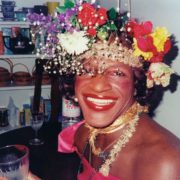Racism In The Workplace And It’s Effects On Black Employees Mental Health

Hearing from the fashion world that once again a black person has been forced to resign from a company due to racism and being undervalued is disappointing yet not surprising. Millions of black employees around the world are mistreated and undervalued at work through unequal pay, lack of opportunities, microaggressions, and the silencing of their voices when attempting to speak up. The fashion world is a notoriously elitist industry, frequently at the forefront of racial discrimination and something must be done.
Now that the world is listening and companies are stating their solidarity with the Black Lives Matter movement, now seems to be the best time to alert your boss of the inequalities lurking within their own business and some of the changes that need to occur in order to show their so-called solidarity. Alot of the allyship that is necessary in order to achieve the goal of equality and ending racism does not need performative messages but requires internal changes and that’s frequently when people fall silent.
Ashley Alese Edwards, former deputy director of news and politics, on Twitter, writes about her experience at Refinery29. Ashley makes some great points about issues that black people have been silently suffering from for years.
While some bosses have been active in making changes to ensure they actively fight racism some have been reluctant and once again silencing their black employees.Love Michael the Culture editor at Paper magazine has spoken out about the racism they have faced at the magazine. “I watched white counterparts, who had not been there as long as me move up to senior-level positions and get raises much faster than me,”.This, not a one of experience but something many black employees have hesitantly spoken out about often met with resistance and claims of playing the “race card”. It seems we need to take these issues alot more seriously and expose the companies that are outwardly to some extent diverse but internally its another story. In Michael’s thread on twitter, he shows the poor response from Tom Florio CEO of Paper magazine once again proving that black voices are only to be heard in regards to black cultural input otherwise their concerns and desires for improvement are ignored or even mocked.
Michael told Page Six: “His gut response to react defensively and dismissively is racist. You’re telling a black person who’s telling you what they experience that they are incorrect.” This is where the frustration really hits particularly that still during this time an employee is crying out for empathy, understanding and change and the CEO of a large magazine refuses to listen to his employee or even just do enough research to realise this is a real global issue which requires all of our immediate attention.
Many of these issues occurring in the workplace can have detrimental effects towards black employees mental health with issues of feeling unworthy, excluded and anxious to come into the workplace to deal with yet again more microaggressions and no one taking them seriously. Often HR within companies lack diversity and the skill set to tackle racism in the workplace so when these issues regarding racism are brought up once again black employees are met with a lack of empathy and understanding. Not enough is being done to look after the mental health of black employees who frequently have to endure much more covert issues than their white counterparts.
In 2018 Race at Work survey found that one in four BAME employees said that they had experienced or observed bullying and harassment from their managers in the past two years and there was a significant increase of BAME employees saying they had also experienced such behaviour from customers and clients (from 13 per cent in 2015, to 19 per cent in 2018). In 2018, 37 per cent of those from a BAME background said that they felt underpaid (compared with 27 per cent of white employees) and 39 per cent that they felt stuck in the role with no opportunities for progression (Along with this and a lack of opportunities and general invisibility, the strain on black peoples mental health is overwhelming. These are some of the issues creatives are coming out and speaking out about including Shaquille-Aaron Keith a fashion creative and member of the PAQ youtube fashion channel as well as a poet.
As a huge fan of PAQ and Shaquille, I was shocked and extremely sad to hear the ordeal he went through. Although it may be painful and hard to talk about we need to keep talking and we need more brave people to keep sharing their stories both to inspire change as well as to show others that this is real and this is not just a trending hashtag for us, this is reality. We need extensive measures to be taken within brands and companies, including more diversity in the workplace, more opportunities available for black people, we need employers and employees to educate themselves on racism including their own racial biases, more mental health resources for black people we need bosses to listen and see their black employees and these are the basics. We need change and we are holding brands and companies accountable till change occurs.





![ZINO VINCI’S ‘FILTHY & DISGUSTING’EP BRINGS YOU TO THE CORE OF THE ARTIST [@ZinoVinci]](https://guap.co/wp-content/uploads/2023/10/Zino-4.jpg)




